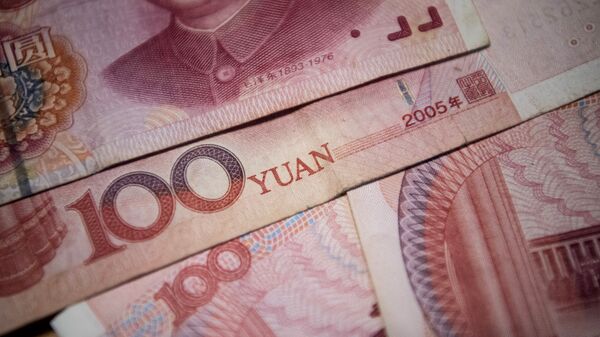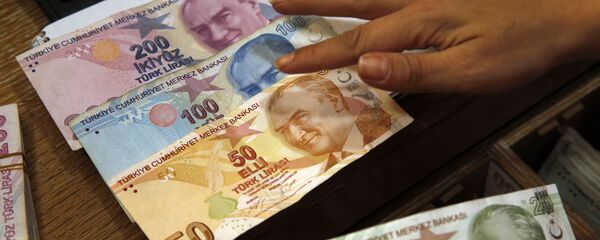Russia and China are engaged in talks over the establishment of a cross-border payment system which would use their national currencies, the Russian government's First Deputy Chief of Staff Sergei Prikhodko told reporters ahead of Russian Prime Minister Dmitry Medvedev’s visit to China.
"The subject of mutual settlements was on the agenda of the latest session of the subcommittee on financial cooperation, which took place in Shenzhen in late September. Among others, the topic of creating a cross-border settlement system with active use of national currencies is being discussed," Prikhodko said.
READ MORE: Xi Calls on World States to Resist Trade Protectionism Together
Prikhodko also reminded that the two countries were working to agree upon arrangements for mutual settlements in their national currencies.
"This is an urgent task – due to the US sanctions, it is essential to have new mechanisms to conduct mutual settlements between the economic entities of both countries. We presume that the transition to settlements in national currencies will significantly reduce sanctions risks and the dependence of bilateral trade on the US dollar, to avoid exchange rate fluctuations and fees for the transfer of money. Ultimately, these measures will increase the status of the national currencies," he said.
Lending in National Currencies
Delivering a speech at the opening of the first China International Import Expo in Shanghai, Russian Prime Minister Dmitry Medvedev said he welcomed a further increase in the mutual lending in national currencies, including loans for the implementation of investment projects.
“They [relations between Russia and China] don’t depend on the current economic and political situation since they are based on mutual respect, including that of each other’s interest. It paves the way for the development of trade, economic and investment ties, as well as for the use of national currencies in trade. I believe it is the right thing to boost credit financing in yuan and rubles,” he said, referring to investment projects.
After talks with Chinese President Xi Jinping at the Eastern Economic Forum in the Russian city of Vladivostok in September, President Vladimir Putin revealed that Moscow and Beijing planned to use their own national currencies more often in trade deals.
President Xi, in turn, said that the two countries should work together to counter trade protectionism and what he described as unilateral approaches to international problems.
In May, Russia’s largest bank, Sberbank announced plans to develop yuan-denominated loans for Russian companies and was considering issuing yuan-denominated obligations.
"Currently, Sberbank is actively cooperating with a number of Chinese banks, including with the purpose of providing loans in yuan to Russian corporate borrowers. The company will also consider diversifying its passive (funds) in yuan, including yuan-denominated debt instruments," the bank said in a statement.
Russia’s government has been working on the de-dollarization plan due to the sanctions imposed by the US, which target the country’s financial institutions, while Beijing has been engaged in an ongoing trade war with Washington, triggered by Donald Trump’s announcement of steep tariffs on Chinese goods.




